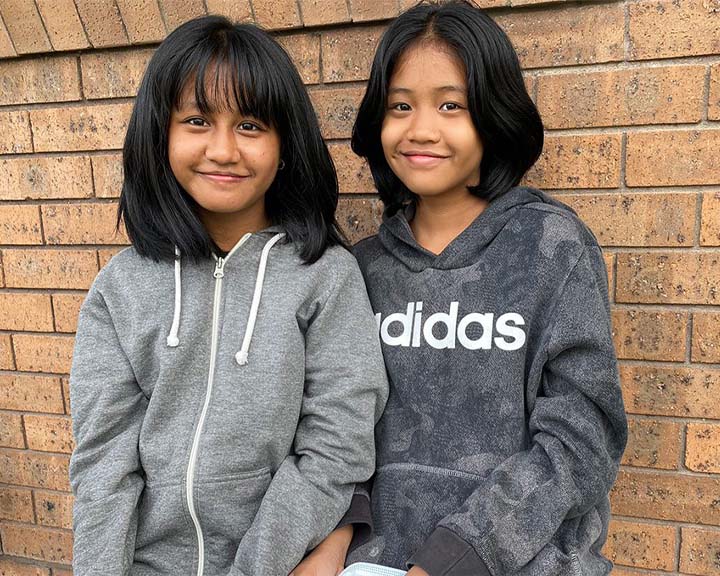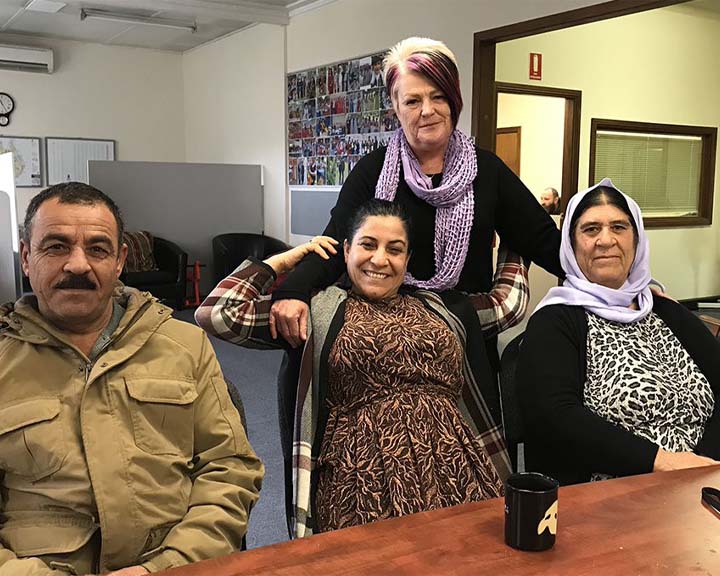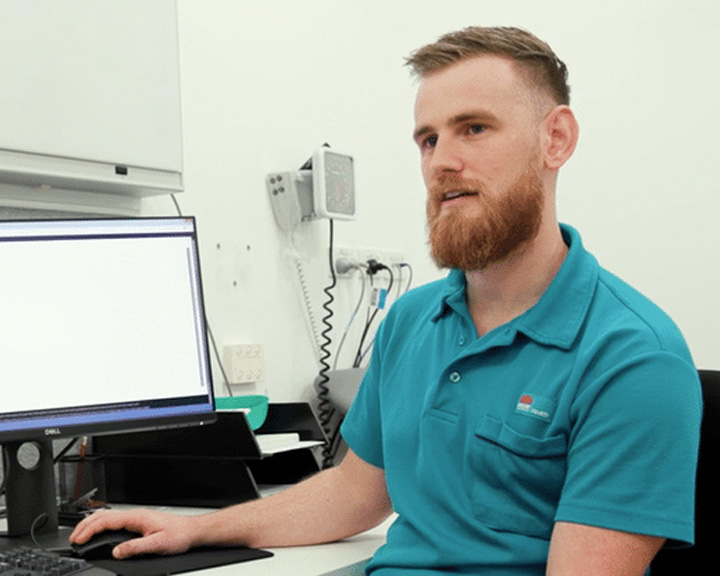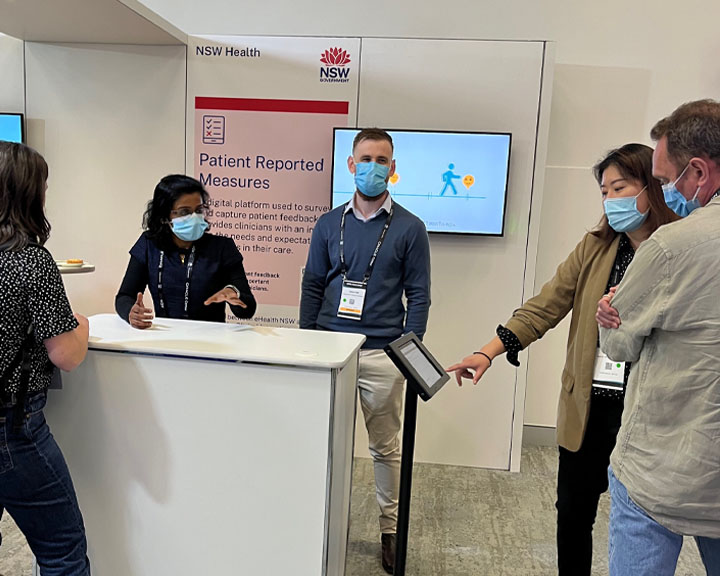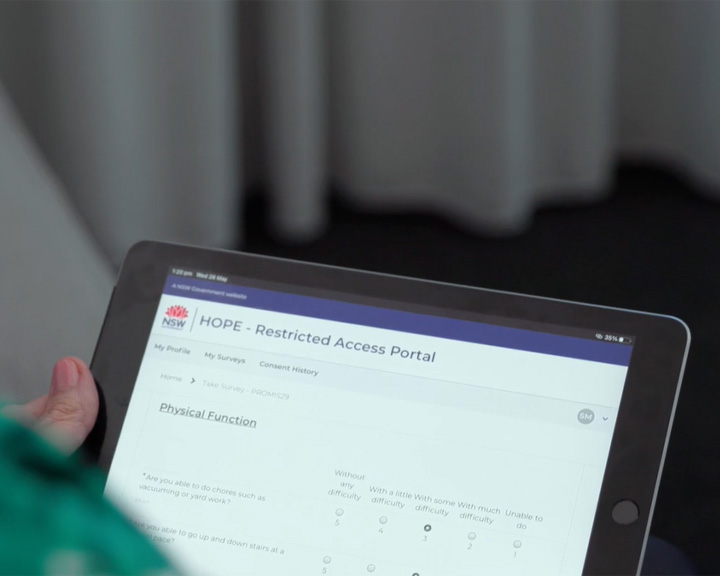Putting the person at the centre of
innovation
We bring together clinicians, consumers and health leaders to design, pilot and implement new ways to deliver healthcare that improve patient experiences and health outcomes.
Improving the patient experience
Our statewide Patient Reported Measures Program gives patients the opportunity to provide direct, timely feedback about their health-related experiences and outcomes.
Patients and clinicians are successfully using the Health Outcomes and Patient Experience (HOPE) platform to capture, review and act on patient feedback.
As at December 2022:
- 443 locations in all local health districts (LHDs) and 3 primary health networks were using HOPE
- 19,735 patients and 939 clinicians were active users
- 46,291 surveys had been completed in HOPE
- 20+ different clinical cohorts were using HOPE at the point of care
- new patient surveys were integrated to help capture the impact of long COVID on patients.
Supporting equitable access to care
The increasing number of humanitarian entrants settling in regional NSW means local health districts (LHDs) may need to establish health services for refugee communities.
We partnered with four LHDs to develop a guide for healthcare workers and their community partners to establish trauma-informed and culturally safe health services for refugee communities.
Local clinicians and community members in regional areas shared their experiences to inform the new web-based resource, Delivering healthcare to refugee communities in regional NSW.
The resource highlights:
- the common elements that contribute to a positive experience and better health outcomes for people from refugee backgrounds
- practical steps and useful resources to guide NSW Health services, staff and their community partners on how to establish a regional refugee health service
- detailed case studies outlining organisational models, local community needs and lessons learnt.
